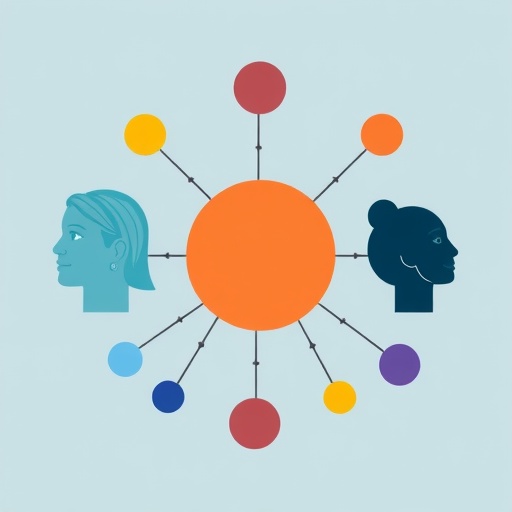For decades, substantial efforts have been made by researchers, leaders, and policymakers to enhance organizational diversity, particularly focusing on historically underrepresented and marginalized groups. The central aim has often been to increase representation for women in STEM fields or to boost the enrollment of Black students in prestigious universities. However, despite the tremendous investment of time, resources, and capital in various diversity initiatives, progress in this arena appears to have stalled significantly. Furthermore, what is particularly concerning is the rising backlash against these diversity efforts, leading to calls for a reassessment of how such initiatives are conceptualized and implemented.
This Review delves into the intricacies of diversity initiatives and policies that are grounded in psychological theories, especially through the lens of social cognition and person perception. By outlining the common strategies currently employed for promoting organizational diversity, the authors endeavor to identify the psychological foundations that underpin these strategies. They also critically assess the effectiveness of these approaches, revealing complexities that have often been overlooked in broader discussions about diversity and inclusion.
Interestingly, while these initiatives are crucial for addressing the urgent issues surrounding under-representation, they have demonstrated limited effectiveness when utilized in isolation. The primary focus on individuals and intrapersonal processes such as stereotypes, prejudice, and discrimination tends to neglect the systemic structures that perpetuate inequality within organizations. As a result, the effectiveness of these initiatives may ultimately be constrained by their failure to engage with the broader organizational environment in which individuals operate.
Looking beyond individual-level strategies, the Review incorporates insights from adjacent fields such as choice architecture and judgment and decision-making. These areas offer essential tools that can complement existing psychological approaches, advocating for a more holistic understanding of how diversity can be advanced. By addressing both systemic factors and individual behavior processes, these frameworks present a comprehensive avenue toward fostering meaningful progress in organizational diversity.
One crucial aspect that emerges from this discourse is the recognition that diversity is not merely an individual concern; it reflects the collective ethos of an organization. Therefore, the authors argue for a reframing of diversity initiatives that transcends individual biases and prejudices, suggesting that a dual focus that incorporates both individual and system-level strategies could yield more substantive outcomes. This transformative approach could enable institutions to dismantle existing barriers and create environments where diverse voices are not just represented but actively engaged in shaping the organizational narrative.
The dialogue around diversity initiatives is further complicated by the political and social climate. As backlash against diversity efforts grows, it becomes essential to reconsider not only the methods used but also the language and narratives that surround diversity-related discussions. Initiatives grounded in psychological theory must grapple with the reality that they exist within a social context that is often resistant to change. Therefore, researchers and policymakers must be adept at framing diversity not as a threat, but as an opportunity for growth and innovation—one that can enhance the overall potential and creativity of organizations.
Moreover, the authors emphasize the importance of empirical evidence in evaluating the success of diversity initiatives. By applying rigorous psychological research methodology, it becomes possible to quantify the impact of various strategies and understand which elements contribute most significantly to success. This empirical lens allows for a critical examination of previous interventions, offering valuable insights that can inform future endeavors. As findings across studies accumulate, they can provide a solid foundation for policies that are not only effective but also widely accepted and sustainable.
In addition to empirical assessments, fostering collaboration among diverse stakeholders is essential for engendering an inclusive climate within organizations. Various stakeholders, including community leaders, educators, and industry representatives, can bring different perspectives and resources to the table. Engaging in dialogue and sharing best practices can help develop a collective strategy that recognizes the multifaceted nature of diversity. By working together, organizations can better navigate the complexities of integration and move toward sustainable inclusion that reflects the communities they serve.
Equally important is the acknowledgment that systemic change requires time and persistence. The path toward meaningful diversity is not a sprint but a marathon, one that calls for sustained effort and commitment from all levels of an organization.
In conclusion, while challenges remain in advancing diversity initiatives, a psychological framework that incorporates both individual and systemic dimensions presents a promising approach. This Review highlights the urgent need to rethink strategies aimed at bolstering diversity in organizations, especially in the face of increasing resistance. By bridging these two levels of understanding, we can pave the way for interventions that not only enhance representation but also enrich organizational culture and performance as a whole.
As we move forward, combining the insights from psychology, organizational behavior, and social policy, we can cultivate environments that truly value diversity, resulting in a richer, more innovative collective experience.
Subject of Research: Organizational diversity initiatives and psychological theories
Article Title: Bridging individual-level and system-level approaches to advance psychology-based diversity initiatives
Article References:
He, J.C., Keller, B.B. & Kang, S.K. Bridging individual-level and system-level approaches to advance psychology-based diversity initiatives.
Nat Rev Psychol (2025). https://doi.org/10.1038/s44159-025-00493-3
Image Credits: AI Generated
DOI: 10.1038/s44159-025-00493-3
Keywords: Diversity initiatives, psychological theory, systemic change, organizational behavior, underrepresentation.




